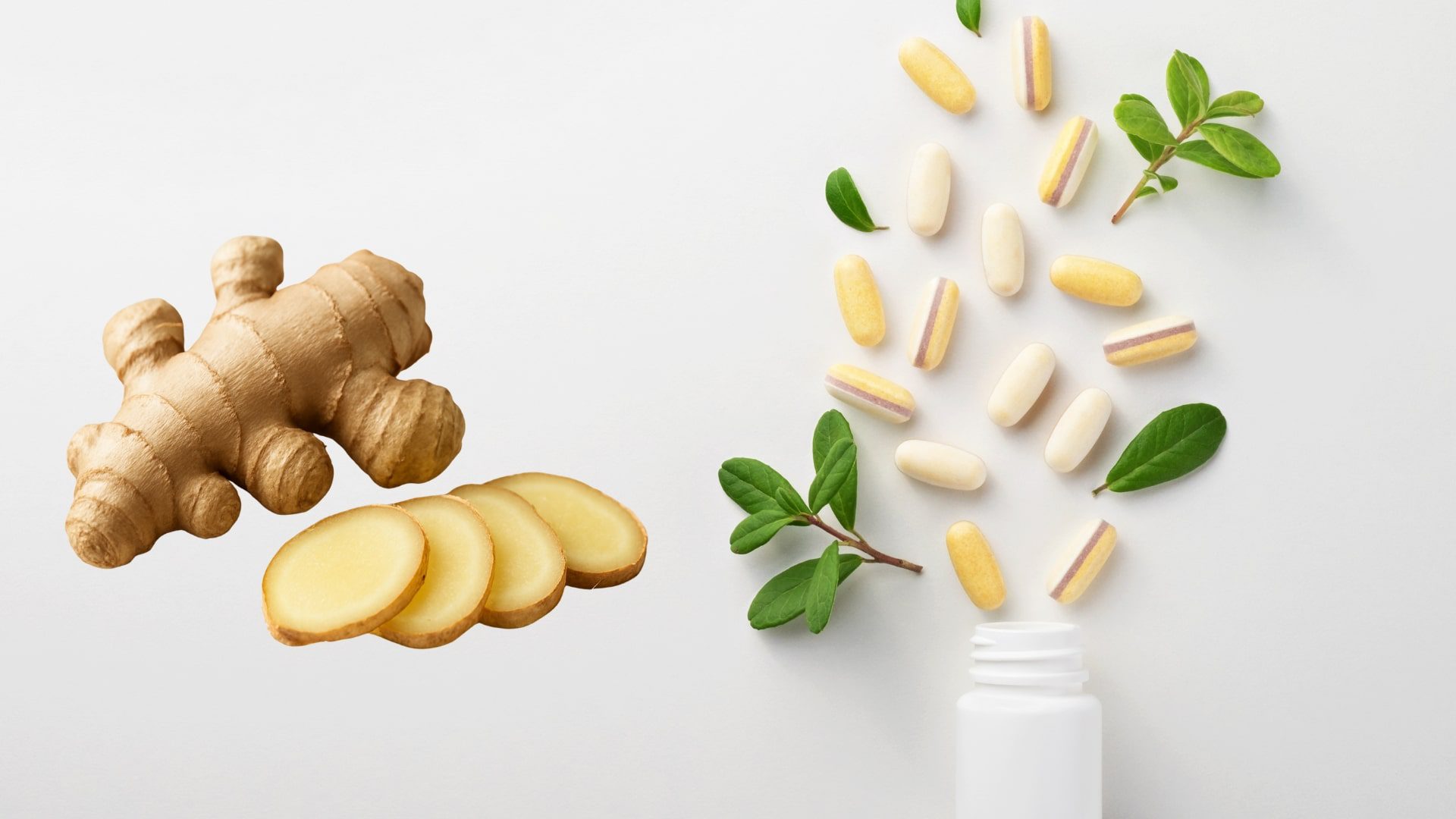
Autoimmune diseases occur when the immune system mistakenly attacks healthy cells, leading to chronic inflammation, pain, and fatigue. Conditions like rheumatoid arthritis, lupus, and multiple sclerosis can significantly impact daily life. While conventional treatments help manage symptoms, natural remedies for autoimmune support are gaining attention. Among these, ginger supplements are celebrated for their anti-inflammatory and immune-supporting properties, offering a complementary approach to chronic illness management.
Table of Contents
What Are Ginger Supplements?
Ginger supplements are derived from the root of the Zingiber officinale plant and are available in multiple forms:
-
Capsules or tablets: Standardized doses of ginger extract for convenience.
-
Powder: Can be added to foods, teas, or smoothies.
-
Liquid extracts or tinctures: Concentrated forms for faster absorption.
The main bioactive compounds in ginger, especially gingerol, are responsible for its therapeutic effects, including anti-inflammatory and antioxidant properties.
How Ginger Supports Autoimmune Health
Ginger supports autoimmune health in several ways:
-
Anti-inflammatory effects: Ginger can reduce inflammation by inhibiting pro-inflammatory cytokines, which are often elevated in autoimmune conditions.
-
Antioxidant activity: Its compounds neutralize free radicals, protecting tissues from oxidative stress.
-
Immune modulation: Ginger helps balance the immune response, preventing overactivation that can worsen autoimmune attacks.
-
Digestive support: Many autoimmune patients experience digestive issues; ginger can soothe the gut and improve nutrient absorption.
Scientific Evidence
Research highlights ginger’s potential benefits for autoimmune diseases:
-
Rheumatoid arthritis: Studies show that ginger extract can reduce joint pain and swelling due to its anti-inflammatory properties.
-
Lupus and other conditions: Preliminary research suggests ginger may modulate immune activity and reduce inflammation markers.
-
General inflammation: Clinical trials indicate that ginger can lower C-reactive protein (CRP) levels, a key marker of systemic inflammation.
While promising, more extensive studies are needed to confirm long-term effects.
Benefits of Ginger Supplements
Taking ginger supplements may provide multiple advantages for individuals with autoimmune diseases:
-
Reduces pain and inflammation in joints and tissues.
-
Supports gut health and digestive comfort.
-
Enhances immune system balance, potentially preventing flare-ups.
-
Provides antioxidant support for overall wellness.
-
Serves as a safe, natural herbal supplement complementing standard treatments.
Dosage and Safety Tips
-
Recommended dosage: Most studies use 500 mg to 1 gram of ginger extract daily, though forms vary.
-
Potential side effects: Mild heartburn, stomach upset, or mouth irritation.
-
Interactions: Caution is advised for people on blood thinners or medications affecting blood sugar.
-
Always consult a healthcare professional before starting supplements, especially for chronic illnesses.
How to Incorporate Ginger into Your Routine
-
Tea: Brew fresh or powdered ginger for a soothing drink.
-
Capsules: Convenient daily dose for targeted anti-inflammatory support.
-
Smoothies: Blend powdered or fresh ginger into fruit and vegetable smoothies.
-
Cooking: Add ginger to soups, stir-fries, or curries for flavor and health benefits.
Precautions and When to Consult a Doctor
-
Pregnant or breastfeeding women should consult a doctor before use.
-
People on blood-thinning medications or managing chronic illnesses should seek guidance.
-
Ginger supplements should complement, not replace, prescribed treatments.
Ginger supplements offer a natural, effective way to support the immune system, reduce inflammation, and improve quality of life for people with autoimmune diseases. By integrating ginger as part of a healthy lifestyle and alongside medical care, patients can enjoy its ginger benefits safely. Its anti-inflammatory and antioxidant properties make it one of the most accessible herbal supplements for chronic illness support and overall wellness.


